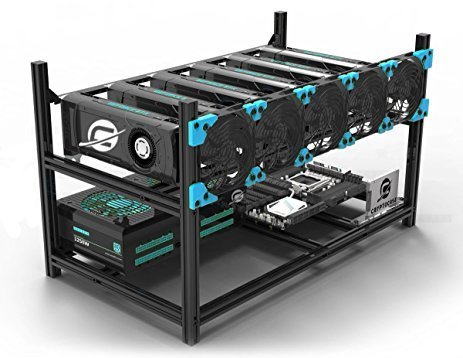Choosing a cryptocurrency
Choosing a cryptocurrency (coin or token) depends on many things, but lets give you some suggestions to think about.
- Long- or short term investment
- The fees you pay for every transaction
- To be created, existing or is already a proven coin or token.
- Environmental / eco-friendly or not
- Attracted to high value coins or to a wallet with millions of low value coins.
- Globally distributed or local
- Is the coin related to a industry you work in, hobby, etc.
- Have much time do you have for this cryptocurrency hobby.
Make sure you do your own research! To help you we will post here information with links to the best available sources on the internet.
Security, keys and wallet adress:
- Is your PC up to date (virusscanner / OS / applications / browser) ?
- You're sure no one used the PC for "illegal" activities or browsing untrusted websites?
- Make sure you have a great password tool (not a website) like KeePass and/or a lot of paper
- Make sure you write down every question and answer (because not every key / password / phrase has the same name)
- Note: Passwords, password phrases, secret sentences, private keys, etc.
- Write down the public key = Wallet adress
- Make backups of alle the keys and application data of PC wallets
- Use 2 factor authentication (wih Authy app instead of Google Authenticator) if possible, especially at exchanges.
How is the organization of the coin organised?
- Check the website of the coin and all social media.
- Check the amount of staff (especially developers) and try to find them on LinkedIn etc.
- Check the developement platform behind the coin. Where is it build on? (Bitcoin, Ripple, Cardano, Ethereum, Ardor, Lisk, Stratis, Stellar, NEO, etc.)
- Check for enhancement in the network, like Lightning network, privacy and more security features.
- Must check if the source code is still maintained on GitHub.
- Check the amount of Markets in the benchmark app.
- Study the Market Cap, 24 hour trades and total supply of coins.
- Check the metrics score (Total %) in another benchmark. Better % and lower Market Cap is maybe an undervalued coin.
Digital indentity
To understand digital identities, we need to understand how cryptographic hashing works. Hashing is a process of taking some information that is readable and making something that makes no sense at all with a fixed length.
For the digital signature we need to use is public-key cryptography also known as asymmetric cryptography. The private key (password, password phrase, sentence of multiple words, etc.) and for verification the public key (wallet adress).
With these ways of formatting the message and make sure you have your own signature, it’s for the systems possible to identify your digital identity without knowing exactly who your are or where you life. This last thing scares people in the government and other authorities, but for you it’s good to know that in many (privacy) cryptocurrencies you are the only one who knows how much is in your wallet.
Which wallets does exist?
In fact there are only 6 types of wallets (to make is easy 🙂 :
- Web wallet at the exchange.
- Web wallet at special wallet website.
- PC wallet (Windows, Mac or Linux) with or without full blockchain.
- Mobile wallet (iOS / Android).
- Hardware wallet / ledger
Paper wallet
The most easy wallet is the wallet at the exchange (like LiteBit, Binance or AnyCoinDirect), because they will update things for you. Another good option is a wallet at a special website (like GateHub for Ripple). Disadvantage is that you have to trust them, because they can be hacked or disappear.
The wallet at the PC is also a good option, if you know you always make backups of the private keys and password (phrases) at 2 different places. Your PC has to be very secure and up-to-date OS & virusscanner. Disavantage is that you have to be into IT and have enough storage & time to download and store blockchains.
Mobile wallets can do the trick also, but you have to make secure the security of a phone (with hundreds of apps and probably an old version operating system) is fine.
We do advice to buy a hardware wallet, but after you have spent a lot of money as big investment.
Don’t use a paper wallet, because lots of paper wallet stuff (on Amazon etc.) is SCAM.
Coins and Tokens news:

Bitcoin to $50k at the end of 2018?
https://www.youtube.com/watch?v=4bhpHtMrKbA After a big crash the Bitcoin died again, but these days the market cap gained 130 billion dollar (as mentioned in our tweet). Let’s hear what one of the crypto influencer have to say […]

What is cryptocurrency mining? (beginners)
Source: CoinTalk

Free Litecoin Cash if you have Litecoin in a desktop Wallet.
Dutch movie about the Litecoin Cash fork at 19 February with free tokens (1 Litecoin = 10 Litecoin Cash) if you have Litecoins in a desktop wallet. Source: Vic Green (YouTube channel)

